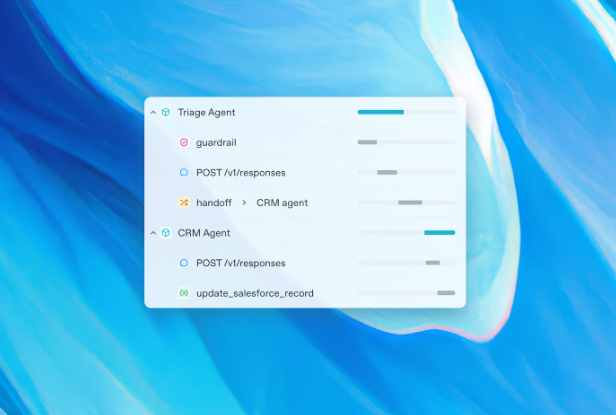 AI
AI
 AI
AI
 AI
AI
The future of artificial intelligence will be dominated by AI agents, and OpenAI is now trying to accelerate that reality by letting developers build their own.
Today the AI company announced the availability of a new “Responses API,” which simplifies the process of creating and deploying AI agents that can perform tasks for their users independently.
The Responses API lets developers create AI agents that are powered by OpenAI’s large language models, and is set eventually to replace the existing Assistants API, which will be retired in about one year, the company said.
OpenAI says the new offering will facilitate the creation of AI agents that are able to employ a file search tool to scan a company’s internal datasets and search the wider internet. Such capabilities are similar to OpenAI’s recently announced Operator agent, which relies on a Computer-Using-Agent or CUA model to help automate tasks such as data entry.
It’s worth pointing out that OpenAI has previously acknowledged that the CUA model is somewhat unreliable when trying to automate tasks on operating systems, and it has been known to make mistakes. As such, OpenAI warns developers that the Responses API should still be considered an “early iteration,” and says it will become more reliable over time.
When using Responses API to create an AI agent, developers can choose from two models: GPT-4o search and GPT-4o mini search. According to the company, both are capable of browsing the web autonomously to try and find answers to questions, and they also cite the sources that inform their responses.
It’s an important capability because OpenAI said the ability to search the web and scour a company’s private datasets can significantly improve the accuracy of its models and therefore the agents based on them. The company demonstrated just how superior its search-capable models are on its own, SimpleQA benchmark, which is designed to measure the confabulation rate of AI systems.
According to OpenAI, GPT-4o search achieved a 90% score, while GPT-4o mini search scored 88%. In contrast, the new GPT-4.5 model, which has many more parameters and is therefore much more powerful, scored only 63% on the same benchmark, because it lacks the ability to search for additional information.
Even so, developers would do well to remember that although these models bring improvements, the search functionality doesn’t completely fix all AI confabulations or hallucinations. The benchmark scores suggest GPT-4o search still makes factual mistakes in around 10% of its responses. Such an error rate may be intolerably high for many agentic AI workloads.
Still, OpenAI wants to encourage developers to get started, at least. In addition to the Responses API, it released an open-source Agents SDK that provides tools for integrating AI models and agents with internal systems. It also provides tools for implementing safeguards and monitoring the activities of AI agents. It follows the release of another tool called Swarm, which provides a framework for developers to manage and orchestrate multiple AI agents.
The new tools are all about increasing the market share of OpenAI’s LLMs. According to Damian Rollison, director of market insights at the agentic AI startup SOCi Inc., the company has used a similar strategy already when it embedded ChatGPT with Apple Inc.’s Siri in the new Apple Intelligence suite, exposing it to a new audience of users.
“The new Responses API opens up the possibility for even broader exposure and acclimation of the general public to the concept of AI agents, perhaps embedded in a range of tools they already use,” Rollison said.
No doubt some developers will be eager to see what kinds of AI agents they can create, but it’s important to remember that these technologies are still nascent and not always as effective as some users might claim. Earlier this week, a Chinese startup took the internet by storm with the debut of an AI agent called Manus that wowed some early adopters, only to be quickly found wanting once it became more widely available.
Support our mission to keep content open and free by engaging with theCUBE community. Join theCUBE’s Alumni Trust Network, where technology leaders connect, share intelligence and create opportunities.
Founded by tech visionaries John Furrier and Dave Vellante, SiliconANGLE Media has built a dynamic ecosystem of industry-leading digital media brands that reach 15+ million elite tech professionals. Our new proprietary theCUBE AI Video Cloud is breaking ground in audience interaction, leveraging theCUBEai.com neural network to help technology companies make data-driven decisions and stay at the forefront of industry conversations.